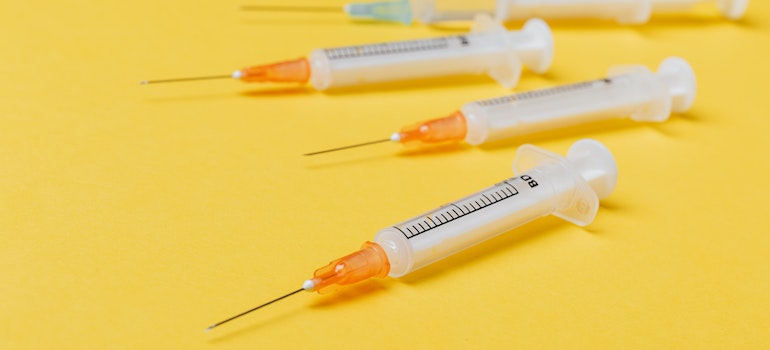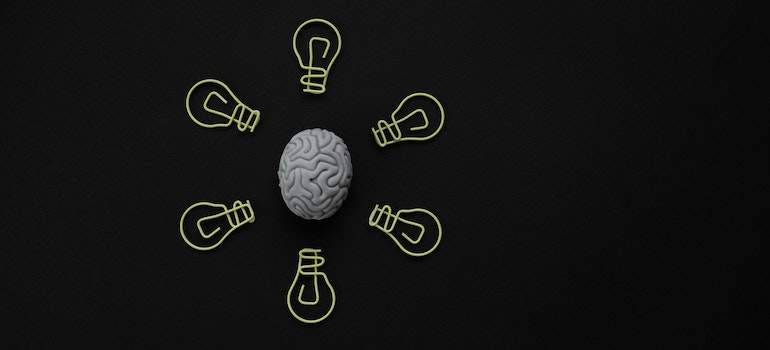The field of modern psychology and psychiatry that concerns alcohol and substance abuse has a broad terminology. Sometimes, it might be hard to keep up. And sometimes, terms simply overlap for various reasons. But, with this being a rising problem all over the world, it’s important to distinguish essential terminology. We know that is hard to worry about terminology when you have more significant problems on your plate, but it can make solving a problem a lot easier in the long run. That’s why our experts from the West Virginia treatment center try to explain terms from article to article. Today, we’ll talk about the difference between dependence and addiction, why it is important, and how to separate the two in reality.
Dependence and addiction—similar, but not the same
Both “addiction” and “dependence” may describe a person’s pattern of substance abuse. Prior to 2013, drug and alcohol dependency were considered the most serious forms of addiction. Addiction and dependency are now often used interchangeably. Even though there are significant differences, both terms describe a harmful and dysfunctional drug abuse routine.

Substance use disorder as an umbrella term
Recent medical and scientific discourse has consolidated the two words into a single umbrella concept – substance use disorder. Substance abuse, dependence, and addiction are all subsets of the broader term “substance use disorder,” which has a more precise diagnostic and treatment plan. This revised definition was developed in part to improve clarity, and in part to reduce social stigma associated with the older words. It’s important to use the word ”disorder” in this case. It indicates that the thing in question is a medical problem that needs help in solving – not something to be taken lightly.
What is dependence?
Abuse of any drug alters the brain and body in ways that might lead to dependency. Using substances like alcohol or narcotics regularly may alter the way your brain and body function, leading to physical dependency. Because it causes the brain to produce new chemicals, new drugs often have an initially pleasant impact, or “high.”
However, these ”happy” times cannot last forever, due to the healthy coping mechanisms that the human body develops. This healthy mechanism is called tolerance. Essentially, your body develops a tolerance to the medication over time, so you may need to raise your dosage to maintain the initial high.

Tolerance is a great part of dependence
As we’ve said, tolerance is a healthy coping mechanism for every organism. However, nature didn’t quite count on the possibility of us making completely new substances and tricking them at every corner. That’s where the trouble starts. What tolerance is all about? All of your bodily functions are determined by the interaction of certain molecules and their receptors on target cells.
In your brain, the molecules that determine your mood, cognition, and various things are neurotransmitters. A lot of drugs work in a way that mimics certain neurotransmitters, such as dopamine (a so-called ”hormone of satisfaction”). That way, they control the mood and essential brain functions in a person that’s using them.
The fewer receptors you have, the more drug you need
However, a coping mechanism that our body prepares in case of too much and too frequent stimulation of receptors (which occurs in substance abuse) is a decrease in the number of receptors, and a decrease in the activity of those receptors left. That means that, over time, a drug user will need a lot more of the substance in question in order to feel the same effect, or even, at some point, to feel normal again.
Compassion is important
According to the experience of our experts at rehab Clarksburg WV – this mechanism is extremely important to understand, especially when it comes to family members of an addict. This particular step in natural evolution is useful for regulating natural processes. But, at the same time, this is the exact reason why we, as a society, need to show more compassion for those battling with substance abuse disorders.
If you have a loved one that’s troubled and you can’t understand why they can’t ”just quit”, ask yourself – how would you feel if you couldn’t physically feel basic happiness without a certain substance? Not euphoria, nothing extreme. Just – a basic, everyday level of happiness.

Withdrawal symptoms—a product of physical dependence
As our experts at rehab New Lexington OH say, you develop tolerance to the medicine and eventually need it to operate correctly – in the normal manner. Among the withdrawal symptoms that may occur if you abruptly stop using the medicine are:
- fatigue
- vomiting
- depression
- anxiety
- seizures
A rise in tolerance for the drug and the onset of withdrawal symptoms upon abrupt cessation are both indicators of dependency. If you need something to tell you that dependence is what is going on – these are the telltale signs. Now, even though this seems quite simple, you need to keep in mind that addiction and substance dependency often occur together, making diagnosis challenging. On the other hand, you have prednisone dependence as an example of conceivable physical dependency despite the fact that the drug itself is not addictive.
This is one of the things that makes self-diagnosing extremely challenging and that’s why we always suggest consulting professionals, like the ones from the rehab Charleston WV team. They’ll know how to distinguish the two and how to help you.

What is addiction?
Addiction, in contrast to dependency, involves both mental and physical symptoms. Addiction is a disorder of the brain that manifests itself in compulsive drug use despite harmful repercussions on a person’s physical and mental health.
Even if you wish to quit taking a drug, you may find that you are unable to do so if you are addicted to it. It’s not only that you’re physically dependent on the drug or alcohol. The crucial red flag and a telltale sign you’re addicted is when you feel an overwhelming want to keep drinking or using, despite the negative effects it’s having on your life.
Gambling and sex addiction are not as frequent as alcohol and drug abuse, but they do exist. Why do we mention these? Because when looking at it that way, we see that addiction is a disease of the brain, and the desire to stop isn’t enough to undo the damage. That is why it’s extremely important for all the patients in addiction treatment centers to have all the love, support, and accpetance of their friends and family.
Addiction is extremely hard to deal with
Treatment may remove physical dependence, but addiction is notoriously difficult to overcome. Addiction treatment experts such as our rehab center Buckhannon WV team can do all the best in treating physical addiction. However, because of addiction, a person’s journey and fighting with illness only begins when they leave the treatment center. A judgmental environment certainly doesn’t help the cause in any way. A person in recovery from addiction may easily relapse and erase years of hard work in a matter of months.
It’s essential for both addicts and their families to understand that the process of addiction therapy is very long and full of trials and temptations. There will be a lot of bumps in the road, and that road might last a lifetime.
How does the brain cope with dependency, addiction, and tolerance?
Developing tolerance, dependency, or addiction to substances over time may have deleterious effects on brain function. Substance usage over an extended period of time disrupts the normal functioning of neurotransmitters, which are responsible for transmitting, receiving, and processing information in the brain. When someone abuses certain substances, it might alter their behavior and impair their capacity to reason rapidly.
Dopamine synthesis in the brain is also negatively impacted by substance addiction. The neurotransmitter dopamine helps to create a positive emotional state. Substance abuse triggers a euphoric state because of the flood of dopamine into the brain. The brain eventually becomes dependent on the medicine to produce dopamine. Without medicine, people feel exhausted and unable to carry out daily tasks. This sensation often brings in drug cravings and even psychotic episodes.

The main difference between dependency and addiction
Many people assume that physical dependency on a drug is the first step in becoming addicted to that drug. It’s conceivable for someone to be dependent on drugs without really being addicted, and likewise for someone to be addicted without actually being dependent on drugs. Most notably, addiction is a behavioral state rather than a physiological one, whereas dependence involves more physical withdrawal symptoms and signs.
To further understand the connection between these two concepts, it is helpful to conceive of dependence as a byproduct of drug usage that often coexists with addiction but is not always the source or effect of addiction itself. Many variables influence how an individual experiences the wide range of emotional and physiological responses prompted by drug usage (including the type of addictive substance).
Dependence is not always illegal
Since we mentioned the variables that depend on the type of addictive substances, we have yet another common myth to debunk. A lot of people assume that dependence is reserved for users of illegal drugs. However, the truth is quite different. We’ve already covered the topic of opioids and opiates that cause addiction. These are the most common prescription drugs that cause dependency and then addiction.
It’s also quite common for benzodiazepines and some antidepressants to cause it too. However, you wouldn’t expect a muscle relaxer, such as carisoprodol, to cause dependency, but it does. Some other unexpected examples are:
- medications for insomnia (zaleplon, zolpidem)
- injectable or even topical testosterone
- phentermine (a medication used for losing weight)
Even some medications that are actually used to treat addictions can cause dependency! One example is buprenorphine, which is used to treat addiction to opioids. This is why professionals at rehab centers in Parkersburg WV say it’s important to pay close attention to therapy modalities.

The similarities between dependence and addiction
Long-term drug use may have severe effects on the lives of both the user and their loved ones, regardless of the specific ailment that develops. Compulsive or chronic drug usage might benefit from medical detox and addiction therapy in a drug rehab facility. Addressing both physical and mental symptoms is essential for treating any condition successfully.
As experts at rehab centers in Morgantown WV suggest – to be successful in breaking a drug habit, it is essential to understand why that behavior began in the first place. It’s common ground for both people with dependency as well as people that are addicted. So, take your time to find out more about the many rehab options out there. Only that way you’ll choose the one that’s best for you.
How to tell the difference between addiction and dependency in real life?
When someone is dependent on a substance, it is obvious. They will have withdrawal symptoms if they suddenly stop using the medicine. Addiction to drugs, however, is not always obvious. Opioid dependence is a real possibility, for instance, in those who use opioids to treat excruciating pain due to cancer. If they abruptly stop taking the drug, they may go through withdrawal. However, people do not have an addiction if they do not repeatedly seek out the drug despite knowing the risks. It may be difficult to tease out the contributions of addiction and the desire to alleviate pain when trying to explain why people seek out opioids.
Addiction to prescription drugs usually has serious social and professional repercussions, such as trouble maintaining relationships or losing interest in pursuing dreams and careers. Addiction to drugs may be diagnosed by observation of one’s actions. You may have a drug addiction if your drug usage is interfering with your personal and professional life.
You are probably not addicted if you experience cravings or withdrawal after you stop a drug, but you are able to refrain from taking it nevertheless. Tell a loved one you may have an addiction if you suspect you have a problem with alcohol or drugs. They may give moral support while you seek therapy for your illness.
How to recognize signs of dependence or addiction in your loved one?
Drug cravings are one of the hallmarks of addiction. They are characterized by strong inclinations to use the substance in question. Because of their addiction, many individuals put their relationships, careers, and academic pursuits on hold and lose interest in the things that formerly brought them joy. You won’t see a sign of losing motivation to pursue dreams as you can’t be in an addict’s head. But, you’ll see a decrease in positive results in a line of work they before enjoyed.
Check your pockets
Addiction is characterized by a drug-seeking behavior, which includes disregard for their own health and safety in pursuit of increased drug usage. Going bankrupt or stealing money from loved ones to fund their drug habit is a dangerous path to go, but it’s a quite common scenario. So, when you have doubts, make sure to check your pockets. If there’s money missing, it can be a huge red flag and a call for help.

”I don’t take too often or too much” is a red flag
Addicts often minimize or completely deny their drug usage. Your loved one may be addicted to drugs if you see them trying to deceive you about their drug use or minimizing use. In order to have their prescriptions renewed, some patients with drug addictions may lie to their physicians.
Dependence is easier to spot
As addiction is something your loved one can hide, you need to be sneaky about it. Dependence, on the other hand, tends to be quite obvious. No one can hide physical symptoms like sweat, extreme fear, and shaking. If you see tremors and other signs we mentioned before – your loved one probably has some kind of dependency.
Will knowing the difference between dependence and addiction help you identify the substance involved?
Knowing the difference between dependence and addiction can certainly help with identifying the substance in question, as some substances cause majorly physical dependence. Some of the substances in question are:
- narcotics classified as opiates (heroin, morphine, Vicodin, etc.)
- a class of tranquilizers known as benzodiazepines
- anticonvulsants like Seconal and phenobarbital (barbiturates)
- alcohol
On the other hand, there are substances that majorly influence a person via psychological addiction. Some of them are:
- cannabis and cannabinoids
- hallucinogens (one of the examples is LSD)
- antidepressants and other psychotropic meds
- cocaine and other stimulants
- Ritalin
Combining this knowledge with knowledge about signs you need to look for in each of them can help a lot with making things better for an addict.
Treatment based on the difference between dependence and addiction
As we’ve discussed how different dependence and addiction our, despite the similarities, it’s clear that each one needs a different therapy approach. Of course, there is a pattern of therapeutic measures that are quite universal for both.
For example, various points in an addict’s life and treatment cycle call for different pharmacological and behavioral therapies, all of which have been shown to be effective. As experts at our rehab Fairmont WV team suggest, in order to adequately address the unique requirements of each clinical condition, it’s important to distinguish the cause and the manifestation of the condition.

The approach depends on the severity of the symptoms
Patients with milder symptoms may be treated by primary care providers with the appropriate education and experience. On the other hand, those with more severe symptoms and/or co-occurring conditions may benefit from a team approach that incorporates psychiatric diagnosis and treatment. Long-term treatment programs have been demonstrated to be the most successful technique in treating complicated chronic conditions and avoiding relapse and may be required in the most extreme cases of drug dependency and addiction.
Focus on individual
Therefore, it is crucial for treatment providers to devise methods to encourage long-term patient retention. Patients should be offered a holistic strategy that includes a combination of psychological and pharmacological therapy modalities to enhance outcomes. Relapse rates are reduced more effectively when therapy focuses on the full person rather than just the addiction. Adding individual therapy for addiction is, therefore, extremely important (even though it won’t hurt in dependence treatment modality too).
A lot of experts need to be involved
Because of the complex nature of drug addiction, the best treatment requires multidisciplinary teams consisting of medical physicians, psychiatrists, psychologists, social workers, counselors, and nurses. Medication and psychosocial therapies used together to treat and care for patients with both medical (liver disease, infection, pain, etc.) and mental health (depression, anxiety, etc.) issues may considerably enhance patient outcomes. Considering the complexity of both dependence and addiction, the more hands-on the job – the better outcome will be.

Why is learning to tell the difference between dependence and addiction important?
It’s important to learn how to tell the difference between dependence and addiction because it determines a lot of factors in seeking help and solving the problem. The differences in mechanisms that influence behavior will help you spot a problem, which is the first step to solving it. Then, it’s important for choosing the course of action and therapy modality. So, it’s not just a terminology issue – it’s your ticket to reaching the stable and harmonious life you deserve.
References:
https://www.ncbi.nlm.nih.gov/pmc/articles/PMC8583742/
https://www.hopkinsmedicine.org/health/conditions-and-diseases/substance-abuse-chemical-dependency
https://recovered.org/addiction/addiction-vs-dependence
https://www.betterhealth.vic.gov.au/health/servicesandsupport/alcohol-and-drugs–dependence-and-addiction



